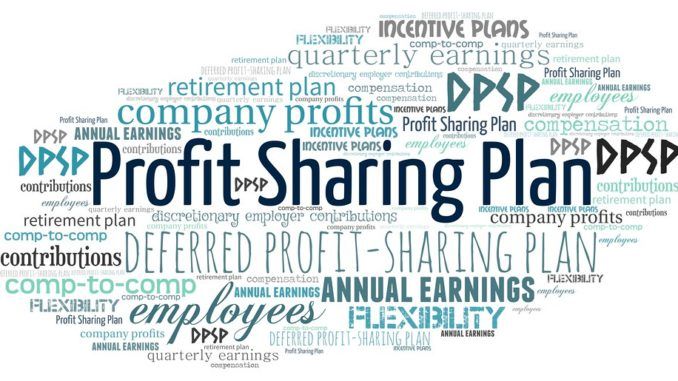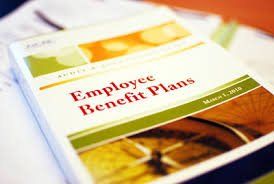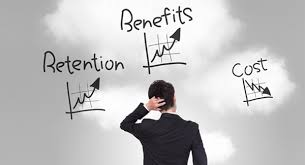The Cost of Advice - The Big Unveil!
- By Paul Bajus
- •
- 01 Sep, 2017
- •

I don't think it will come as a surprise to any of our clients that we get paid for what we do. Maybe it will for some though, because apparently studies lately have shown that 50% of investors don't know they pay fees at all, while 75% don't understand the fees they pay.
If you are in the camp that knows that there are fees you may have wondered how much we get paid, and come January, at least for clients that have funds invested through our investment dealer Assante Financial Management Ltd., you will find out! End of December statements that will be out mid January will show the dollar amount of fees that were paid to the dealer, in our case Assante. This applies mainly to mutual funds, but if we have placed other investments for you through Assante the commission that was paid to Assante for those investments will be disclosed as well. The other important addition you will see on your statement is your personal rate of return. The personal rate of return is important because it shows your rate of return for your entire account, not just for each fund that you hold.
This initiative from the Government has two main goals that we agree with whole heartedly; 1) tell investors how much they have made on their investments on a % basis – ie you have averaged 8.4% a year after fees over the last, say, 5 years. 2) tell investors how much they paid in fees, as a $ amount per year. The only caveat we would have is that what will be shown is not the total amount of fees you paid, just the fees for the dealer and advisor.
Example:
~ Jim invests $100,000 in an equity mutual fund through us
~ the fund’s fee is 2% a year, that fee is called the “Management Expense Ratio”
~ 2% of $100,000 is $2000, and that is the total fee paid for the year for owning that fund
~ of that 2% fee, typically 1% gets paid to the dealer, and of that the dealer takes their cut and pays the balance to us. So in this example $1000 is paid to the dealer, and that is what will be shown on the new statements
~ Jim invests $100,000 in an equity mutual fund through us
~ the fund’s fee is 2% a year, that fee is called the “Management Expense Ratio”
~ 2% of $100,000 is $2000, and that is the total fee paid for the year for owning that fund
~ of that 2% fee, typically 1% gets paid to the dealer, and of that the dealer takes their cut and pays the balance to us. So in this example $1000 is paid to the dealer, and that is what will be shown on the new statements
Points to keep in mind:
1) None of the fees are new, what is new is they are being disclosed in a way that makes it more transparent for investors.
2) So far the regulators haven’t required the insurance industry to make the same disclosure for segregated funds that they offer.
3) There is a cost for advice, just like there is cost for any other service, what is a valid question is what is the value I am getting for that service?
4) For some of you the fee and rate of return disclosure might still not make 100% sense, and we’re happy to go through it with you so it does.
1) None of the fees are new, what is new is they are being disclosed in a way that makes it more transparent for investors.
2) So far the regulators haven’t required the insurance industry to make the same disclosure for segregated funds that they offer.
3) There is a cost for advice, just like there is cost for any other service, what is a valid question is what is the value I am getting for that service?
4) For some of you the fee and rate of return disclosure might still not make 100% sense, and we’re happy to go through it with you so it does.
What we do to earn our fees:
Each situation is different, but here are some of the things we do that you might not be aware of:
~ Help you to articulate your goals and create a plan.
~ Change the plan over time as changing life circumstances dictate.
~ Help you to navigate the complex world of investing.
~ Keep communication lines open, especially in down markets, helping you stick to your plan.
~ Monitor and adjust investments in your portfolio.
~ Coordinate with other financial professionals such as your accountant and lawyer.
Each situation is different, but here are some of the things we do that you might not be aware of:
~ Help you to articulate your goals and create a plan.
~ Change the plan over time as changing life circumstances dictate.
~ Help you to navigate the complex world of investing.
~ Keep communication lines open, especially in down markets, helping you stick to your plan.
~ Monitor and adjust investments in your portfolio.
~ Coordinate with other financial professionals such as your accountant and lawyer.
So please review the new statement when you get it, and if you feel that you aren’t getting value for the fees you are paying, or if you feel there is something more that we should be doing for you, let us know!
Principal Residence Exemption Changes
If you are lucky enough to own a home in Canada, especially in Vancouver, then you have enjoyed a very nice appreciation in the value of that home over the last number of years. You are no doubt aware that if that home is deemed as your principal residence, and you are to sell it, that the gain that you have made is tax free through the use of the Principal Residence Exemption (PRE) section of the Income Tax Act.
If you are lucky enough to own a home in Canada, especially in Vancouver, then you have enjoyed a very nice appreciation in the value of that home over the last number of years. You are no doubt aware that if that home is deemed as your principal residence, and you are to sell it, that the gain that you have made is tax free through the use of the Principal Residence Exemption (PRE) section of the Income Tax Act.
Recently the Federal Government tightened rules on the PRE with the intention of making the benefit available only to Canadian residents. For some reason the phrase “closing the barn door after the horse has left” comes to mind, but I digress... To make that change happen the Government has imposed additional tax reporting and changed parts of the Income Tax Act. Here is how you may be affected:
~ Now, if you sell your home you will have to report the disposition on your tax return. Previously, if the entire gain was sheltered by the PRE you didn’t have to report it. The first implementation of the new rule will require homeowners who sold their home any time during 2016 to report it on their 2016 tax return.
~ If the disposition isn’t reported there isn’t an immediate penalty, but CRA will have an indefinite period to reassess the disposition and possibly disallow the exemption.
If you sold your home during 2016 speak to your tax advisor!
Paul Bajus - CLU, CFP, CHS - is the Director of Director, Pensions and Corporate Wealth Management for BF Partners. Learn more about Paul.


























